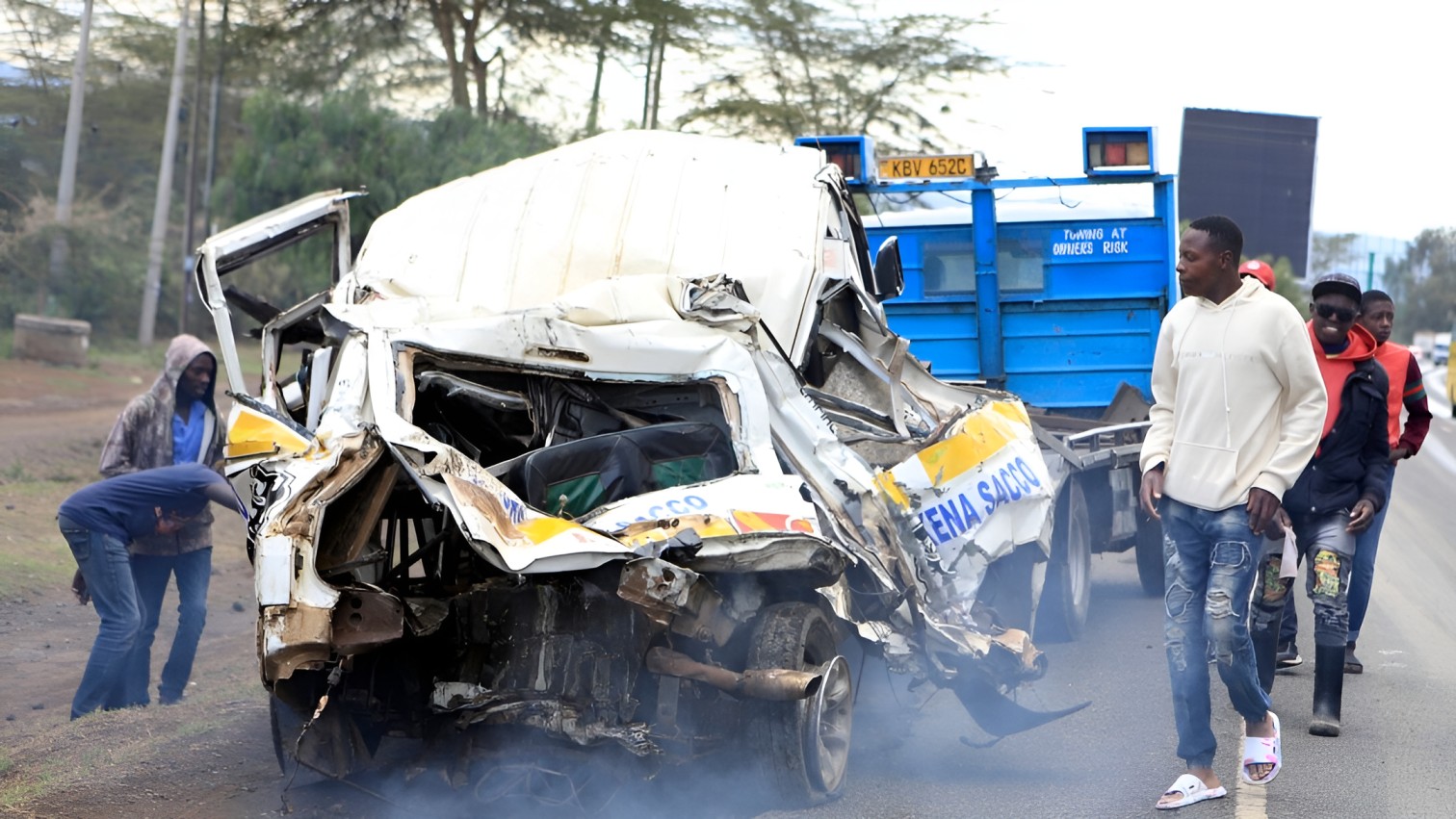The United Nations has emphasized the need for targeted measures to reduce road accidents, which cost developing nations at least three percent of their GDP annually.
Kenya is among the countries facing a rise in road crash incidents.
According to the National Transport and Safety Authority (NTSA), around 3,000 people lose their lives on Kenyan roads every year.
Recent NTSA data reveals that between January 1 and March 31, 2025, at least 1,139 fatalities were recorded.
This figure represents a slight decline compared to the 1,166 deaths reported during the same period in 2024.
Pedestrians were the most vulnerable group, with 420 deaths, followed by motorcyclists, who accounted for 301 fatalities.
Passengers came third with 189 deaths, while pillion riders made up 130 of the fatalities.
Additionally, 83 drivers and 16 pedal cyclists died in the first quarter of the year.
Efforts are underway to incorporate non-motorised lanes for pedestrians and cyclists in road construction projects.
In line with this, a bill was presented to the National Assembly last year aimed at establishing consistent design standards for non-motorised transport lanes.
The Kenya Roads (Amendment) Bill 2024 seeks to ensure uniformity in the design and implementation of these lanes across the country.
The United Nations has highlighted the urgent need to improve safety for pedestrians and cyclists.
“Walking and cycling should be the most common—and therefore the safest—forms of transport,” said Etienne Krug, chair of the UN Road Safety Collaboration and director of the World Health Organization’s efforts to address social and economic factors affecting health.
In September 2020, the UN General Assembly adopted a resolution launching the Decade of Action for Road Safety 2021-2030, aiming to halve road traffic deaths by the end of this period.
While progress has been made, the WHO stresses that stronger, coordinated efforts are required across all policy areas.
Each year, approximately 1.2 million people die globally in road traffic accidents, with pedestrians and cyclists making up more than a quarter of these fatalities.
The UN estimates that 90 percent of roads worldwide fail to meet pedestrian safety standards, and just 0.2 percent have dedicated cycling lanes, leaving vulnerable road users dangerously exposed.
Enhancing safety for pedestrians and cyclists yields significant health, economic, and environmental benefits for communities.
"Walking and cycling promote health and contribute to more sustainable cities. Every step and every ride reduces congestion, air pollution, and disease," said Dr. Tedros Adhanom Ghebreyesus, WHO’s director-general.
Road traffic injuries are the leading cause of death among children and young adults aged 5 to 29 years, with about 1.19 million fatalities annually.
Low- and middle-income countries bear 92 percent of road traffic deaths, despite having only around 60 percent of the world’s vehicles.
More than half of all road traffic deaths involve vulnerable road users such as pedestrians, cyclists, and motorcyclists.
Two-thirds of these fatalities affect people of working age, between 18 and 59 years old.
Men are generally three times more likely to die in road accidents than women.
Key risk factors include human error, speeding, impaired driving due to alcohol or drugs, failure to use motorcycle helmets, seatbelts, and child restraints, distracted driving, unsafe road infrastructure, and poorly maintained vehicles.
Additional challenges include insufficient post-crash medical care and weak enforcement of traffic regulations.
